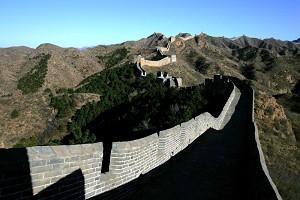TAIPEI—According to Han Dongfang, an advocate of Chinese workers’ rights, labor strikes have become an everyday occurrence in the Zhujiang Delta of Gaungdong Province. At least one major strike with more than 1,000 participants takes place each day. This is typically accompanied by many other, more minor incidences, of workers walking off the job.
Han Dongfang, who is currently promoting a new book Justice’s Cry: The Voice of Chinese Workers in the U.S., accepted an interview with Radio Free Asia. He said, “The international community is holding an unrealistic illusion about China. People believe everything in China will get better as China’s economic development continues.” He commented, “In fact, this is not the case. The international community has to be aware that behind the economic miracle is the sacrifice of health and human rights of Chinese people.”
Han pointed out that although the newly enacted so-called “Labor Contract Law” stipulates that laborers can elect representatives to negotiate contracts with the capital, local governments do not support laborers taking initiatives in fighting for labor rights because of financial concerns.
Han said local Chinese regime normally won’t step in until labor-capital disputes deteriorate. The governments’ hands-off policy is virtually encouragement for the laborers to engage in radical actions and for certain, strikes are an effective approach for the Chinese workers to defend their rights.
The Zhujiang Delta in Gaungdong Province is one area that enjoys rapid economic development in China. It is the most important production base in southern China. About one-third of Chinese exports are contributed by this area. Many Western companies establish manufacturing plants or source goods from the area. The majority of the laborers that work in the Zhujiang Delta are from inland provinces, such as Sichuan, Guizhou, Hubei and Hunan. As industries grow and workers keep pouring in, China’s labor rights advocates have been paying more and more attention to the labor welfare in the Zhujiang Delta.
Last year, foreign companies, including Walmart, Disney and Dell, were accused of buying products from local firms involved in labor exploitation. Common misdeeds of employers are cutting wages below the minimum set forth by the Guangdong provincial government, forced overtime and child labor.
The Chinese regime does not recognize the legitimacy of independent labor unions. Instead, the regime hopes to settle labor-capital disputes through the All China Federation of Trade Unions. The regime has also dedicated itself to establishing labor unions inside foreign-owned enterprises.



